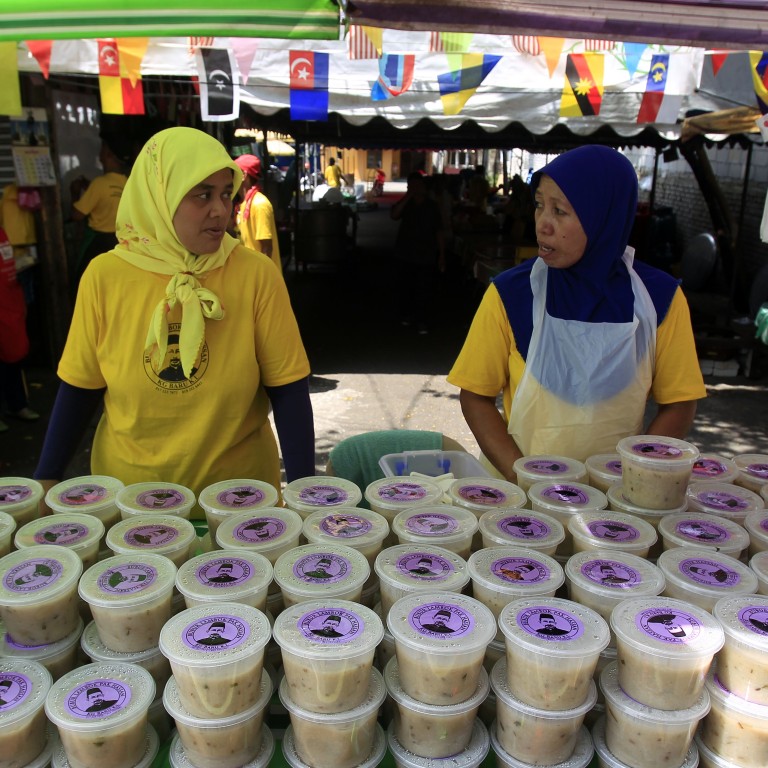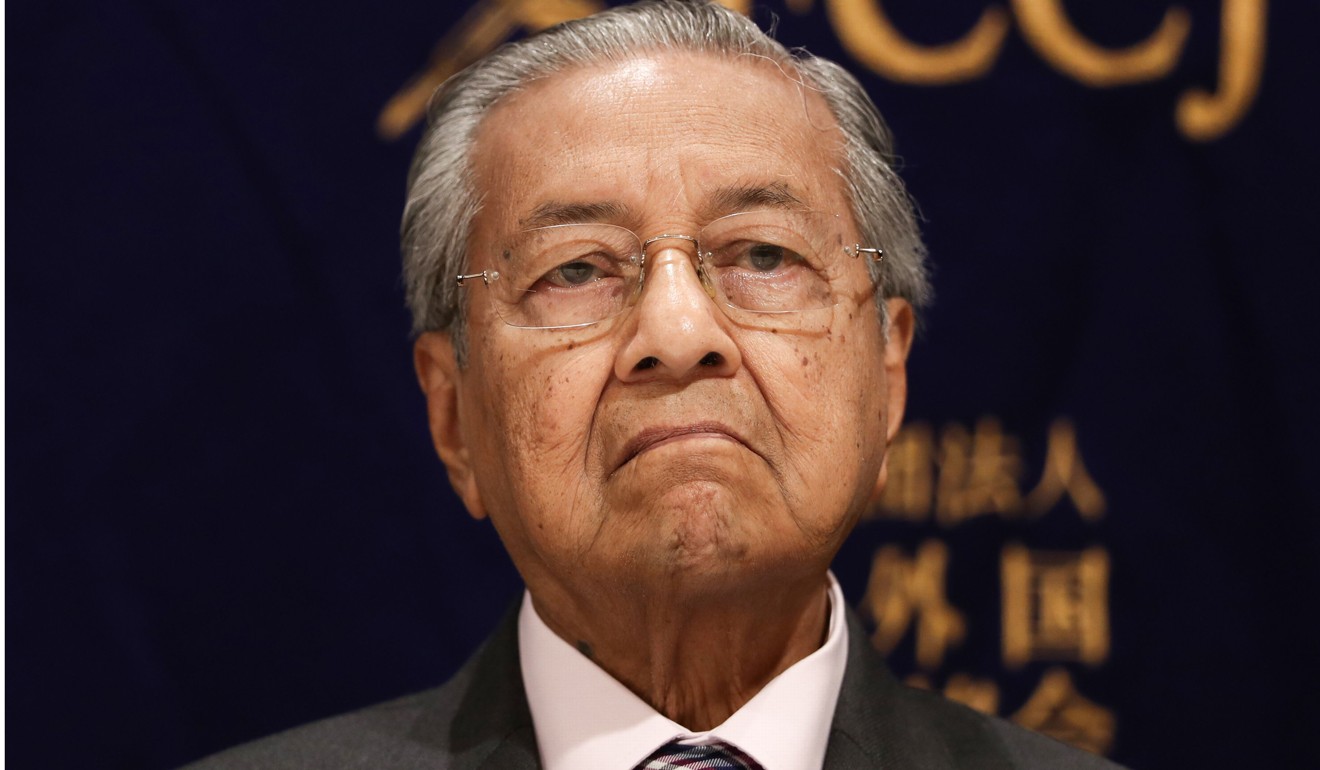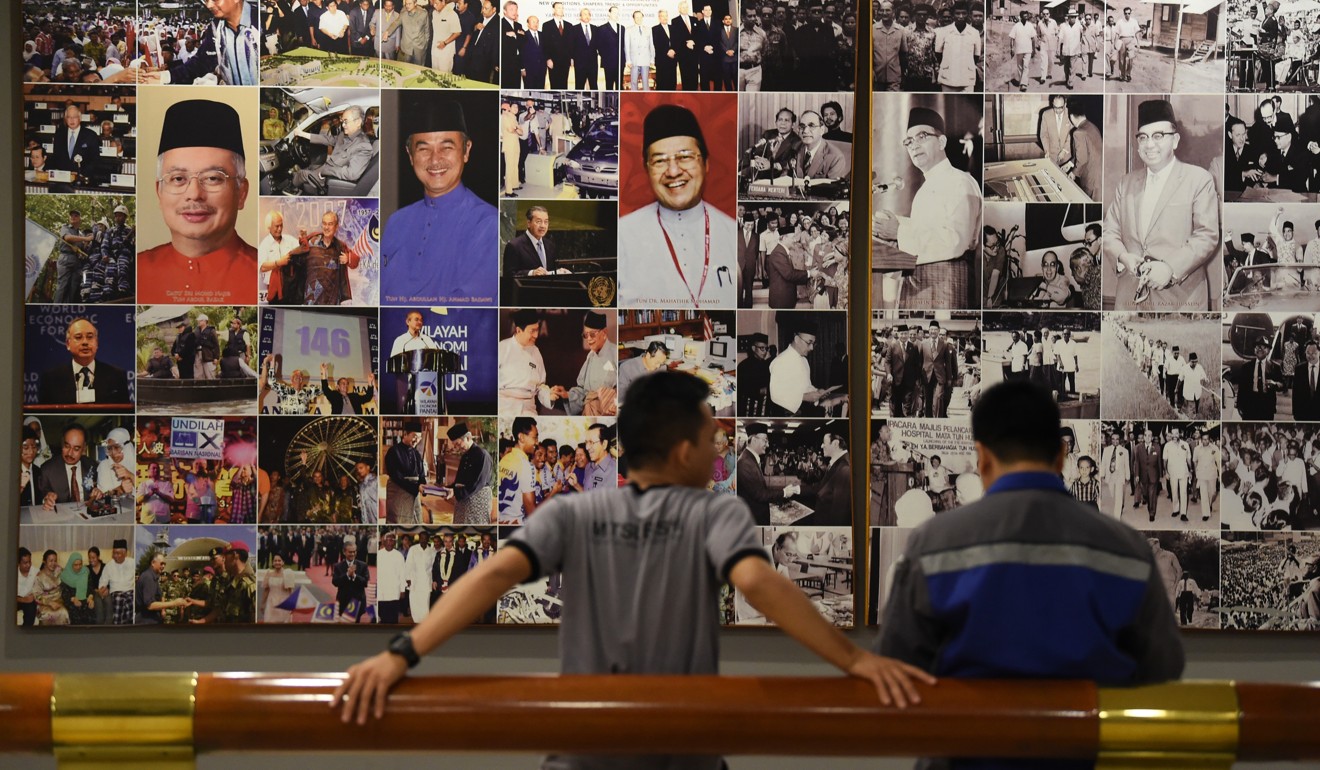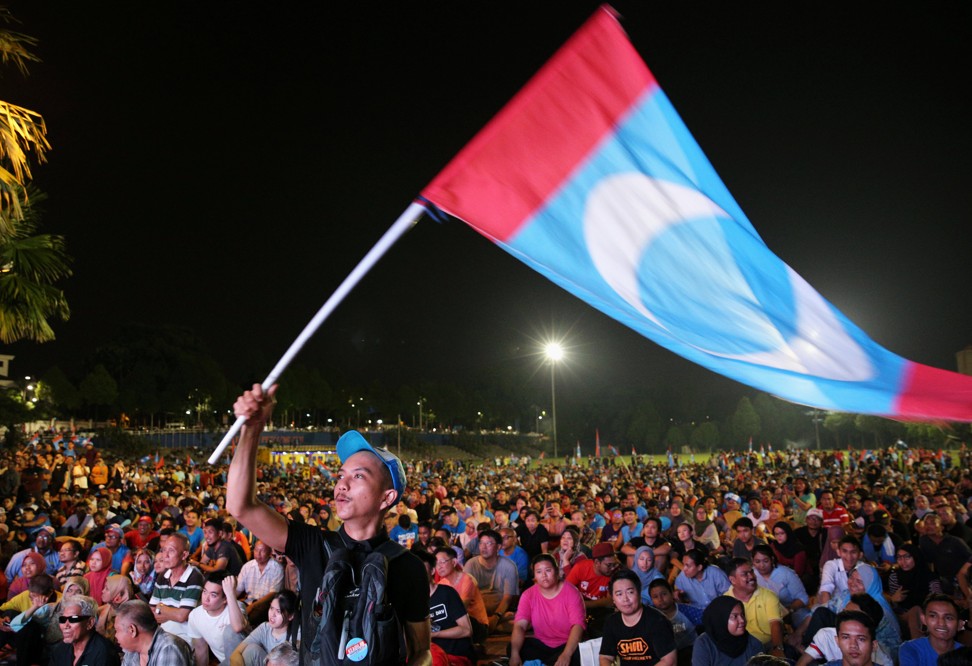
Non-Muslim goods boycott a ‘ticking time bomb’ in Mahathir’s Malaysia
- On social media groups, Malay-Muslims have been urged to avoid buying goods, including halal products, sold by non-Muslims
- PM Mahathir has advised against the boycott, while a member of a royal family has rebuked purveyors of hate speech, calling their acts a ‘ticking time bomb’
Messages urging the country’s Malay-Muslim majority to boycott goods produced by non-Muslims, even those that are halal, have been actively shared on Facebook and WhatsApp chat groups. Names of mini-markets perceived to be owned by non-Muslims are also listed as places to be avoided.
Yeah Kim Leng, an economics professor at Sunway University, pointed out that if people heeded the boycott calls, the halal sector – which covers food and beverage, cosmetics and health care products – which non-Muslim businesses also serve, could be badly hit.
In Malaysia, hopes for racial unity. The reality? Growing division
This transformation of Malaysia’s political landscape has been marked by a push to exploit ethnic and religious differences for electoral gain.

Getting angry with other people will not solve our problems
“Our fate is in our own hands. Getting angry with other people will not solve our problems. Our numbers are said to have increased. But the majority of the poor cannot compete with the rich minority.”
POLITICALLY MOTIVATED
Last week, an archery club was forced to apologise on Facebook after it accused a supermarket of banning the sale of products made by Malay-Muslims.
The supermarket made a police report and gave the club 48 hours to retract its statement, which it did.
But the post is just one example of the malice swirling in Malaysia’s social media space, with fiery posts calling on Malay-Muslim consumers to support “fellow Muslims”.
Mahathir tells Malay-Muslims to ‘work harder’
In the working-class section of Ampang district in Kuala Lumpur, a Chinese Malaysian business owner told This Week in Asia that he had not been affected, as he chatted warmly with his Malay customers, who were buying cans of paint, brushes, brooms and other household items.
“This boycott has no impact on my shop. I have Malay customers and they still come here. This is just some political nonsense,” said the owner, who declined to be named.
Muslim cleric Ahmad Awang said he believed issues of race and religion would continue to be played up.
Malaysia’s racial and religious tensions rage on, fuelled by politics
“This is dangerous,” said Ahmad, who is also an adviser with the progressive Islamic Amanah party, which is part of the ruling coalition.
“The opposition we have now in Malaysia is very different from the … Barisan Nasional/Umno government, which was a coalition of diverse parties.
“By teaming up with PAS, Umno has signalled it is leaving its Barisan Nasional coalition partners like the Malaysian Chinese Association (MCA) and Malaysian Indian Congress (MIC) to become more ultra-Malay.”

Previously, the country’s opposition was dominated by the multiracial, nationalistic People’s Justice Party (PKR), PAS and the Chinese-based Democratic Action Party (DAP).
The diverse blend of parties made for a more inclusive agenda for the former opposition coalition, which campaigned on the platform of clean elections, clean government and human rights.
Ahmad said Pakatan Harapan’s leaders should try to win over Umno supporters as the component parties in the ruling coalition were moderate and plural.
Faizal Musa, an academic from the National University of Malaysia, said he expected identity politics to continue to dominate public discourse in the country until the next election in 2023.
“Just as it’s manipulated today, it will be exploited in the future still,” he said.
Controversial preacher apologises to Malaysians over race remarks
Faizal said racial tensions were placing Malaysia in an “alarming” position.
“It stops us from doing real things like [achieving] progress and reform. It is a distraction. All distractions, including racism and sectarianism, must be looked at seriously,” he said.
Cleric Ahmad is worried that race and religious issues will affect the government’s ability to accomplish its day job, including fixing the economy.
“When the next election comes, [the opposition] will then say the government did not do much in the past five years,” Ahmad said.
The halal sector … could potentially be hit by a demand shock if the boycott were to take a foothold
Economics professor Yeah agreed that issues like the boycott calls were detracting from the government’s urgent task of supporting the domestic economy, which was being affected by “external headwinds”.
“Trade-dependent Malaysia will have to find internal sources of growth to offset the external slowdown. Hence, facing another negative force like the selective boycott of businesses will make it harder for the local economy to offset the fall in external demand.”

A ROYAL REBUKE
The ongoing racial and religious divisions have also prompted a member of Malaysia’s constitutional monarchy to weigh in.
Sultan Nazrin Shah, who presides over the royal household of Perak state, criticised those spreading hate speech and fake news.
“Placing dolls and hurling pork at mosques, placing of a cow’s head at a Hindu temple and spreading false news on social media will spark more hatred,” the royal was quoted as saying by Malaysian newspaper The Star , referring to past incidents.
“These disgraceful acts and hate speech need to stop immediately. It’s not healthy, as it puts the country in a dangerous situation.”
Malaysian queen discusses Chinese roots and lending money to Robert Kuok
Malaysia has nine royal households, each led by a sultan, who take turns to rule as king through a vote in a Council of Rulers. The constitutional monarchy assumes a largely ceremonial role, including acting as the custodian of Islam.
Sultan Nazrin called on leaders and politicians to use the voice of moderation, reason and brotherhood to allow people of different racial groups in Malaysia to live in harmony.
“Is getting political support worth acting in such a way?” he asked. “What satisfaction can they get when the blood of the people is spilled, bodies are piled up, buildings are razed and vehicles are burned?” ■


